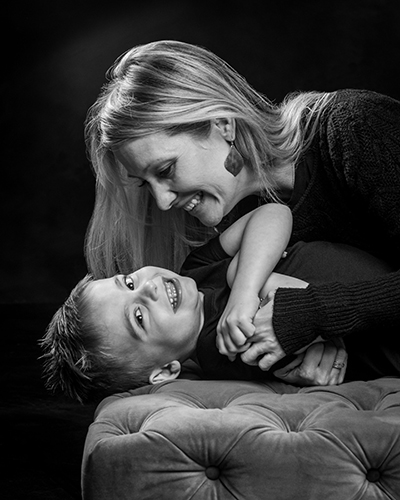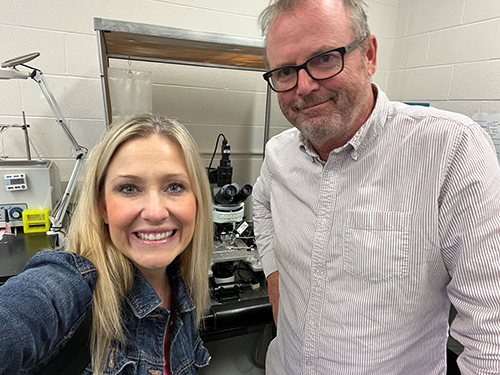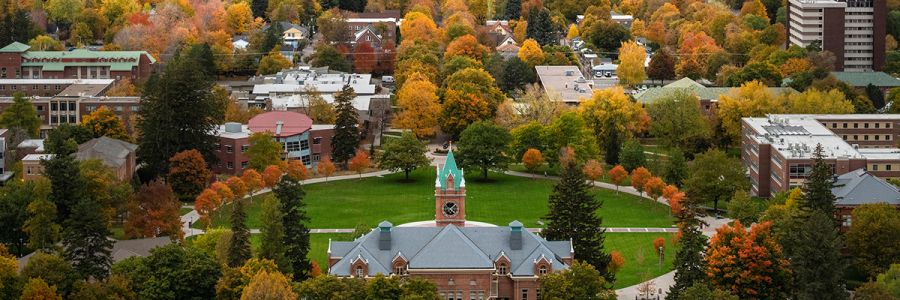'Fighting Like a Mother'
Philanthropy Advances Research at UM, Helps Families Find a Cure
June 12, 2023
Amber Freed was like any mother looking for answers. Her twins — born in 2017 — were still babies when she and her husband noticed Maxwell wasn’t advancing at the same pace as his sister, Riley. The doctors tried to reassure the family, but Freed knew there was something wrong. Soon, the doctors did, too.
“I noticed the doctor's tone change from, ‘You’re just a crazy new mom,’ to one of panic,” Freed said.

Discovering the Rare SLC6A1 Genetic Mutation
After some medical tests, the Freeds learned Maxwell has a genetic mutation that causes a spectrum of neurodevelopment disorders and can include epilepsy, developmental delays, movement disorders and features of autism. This genetic mutation was so rare it is only known as SLC6A1, named after the affected gene location.
While SLC6A1 is now listed among the top ten gene variants associated with autism or epilepsy, at the time, there were only 30 kids in the world with the SLC6A1 diagnosis. The doctors told the Freeds to watch and wait. Social services told them, “Go home and give him the best life you can.”
From Financial Analyst to Genetic Research Advocate
But Freed was fiercely determined to find a cure. The day Maxwell was diagnosed, she left her career in equity analysis and bought books on molecular biology, genetics and neuroscience. She reached out to scientists working on similar genetic mutations. She tracked down other families impacted by the SLC6A1 diagnosis. She contacted politicians. She understood that as a mother with a business degree and the ability to quit her job, she was in the unique position to advocate — not just for Maxwell, but for other kids, too.
“I was going to fight like a mother for my son,” she said. “I was going to do everything in my power to give him a shot at the life he was meant for, and not let this disease affect him. So, I dedicated my life to forming a treatment for him and every other child with it.”
Freed, from Billings, soon learned that research funding for Maxwell’s disease is extremely limited. In 2018 she founded SLC6A1 Connect, a patient-led organization that is making major strides in research about the disorder. The organization advocates for families, provides education and resources, hosts conferences, and serves as a community hub. Freed and her team have raised millions of dollars to support research across the country, turning curious doctors into SLC6A1 specialists along the way.
Partnering with the University of Montana’s Neuroscience Program

Freed’s tenacity also led her to seek out Dr. Mike Kavanaugh, a professor of neuroscience in the Division of Biological Sciences at the University of Montana. Dr. Kavanaugh has studied the functions of the SLC6 gene family in the brain for more than two decades. He has worked with drug companies and organizations including the n-Lorem Foundation, a nonprofit dedicated to treating patients like Maxwell, to develop new RNA-targeting therapies for genetic diseases.
Dr. Kavanaugh and his students at UM conducted experiments that defined the effect of Maxwell’s mutation and established that he was a good candidate for a type of gene therapy known as antisense oligonucleotide (ASO) therapy. Their work led to the development of promising new ASO therapies for Maxwell that are now undergoing further testing. Meanwhile, ongoing research continues with the UM group’s discovery of an alternative class of drugs they hope will lead to more widely available treatment for the expanding group of children diagnosed with SLC6A1 mutations.
Building Montana’s Leadership in Precision Medicine and Genetic Therapy
Private support for UM’s neuroscience program is essential to advancing Dr. Kavanaugh’s cutting-edge research; gene therapy and drug development research costs millions of dollars for basic development and clinical trials, all of which takes years. The cost is high for patients, too, and is usually not covered by insurance. Overall costs are expected to decrease as scientific discoveries progress.
SLC6A1 Connect has become a key philanthropic partner for UM’s neuroscience program through significant financial and research contributions. Continued support from the organization will scale up Dr. Kavanaugh’s critical efforts, attract talent to discover innovative solutions and provide exciting opportunities for students in a variety of majors across the biological sciences, while positioning UM as a leading institution in genetic therapy.
“Amber Freed is a force of nature,” Dr. Kavanaugh said. “Her contributions to finding a cure for her son and other families affected by SLC6A1 are inspiring.”
Philanthropy ensures Dr. Kavanaugh and other neuroscience researchers at UM can continue to contribute to the development of groundbreaking treatments for a wide range of genetic illnesses associated with neurological conditions. With ongoing private support, this work will benefit more people around the world who are impacted by many genetic diseases similar to SLC6A1, including epilepsy, autism, Parkinson’s disease, Alzheimer’s disease and more.
Last year, SLC6A1 Connect recognized Dr. Kavanaugh’s efforts with the Scientific Hero of the Year Award.
“All SLC families worship the ground Dr. Kavanaugh walks on for his commitment to helping our kids,” Freed said. “In our darkest moment, we took refuge in knowing how much he personally cares, and how much that equates to professional enthusiasm. And now, he’s putting Montana on the map as a hub in precision medicine for neurology.”
Support the Future of Genetic Research at UM
To give in support of UM’s neuroscience program, contact Dan Minor, senior director of development at the College of Humanities and Sciences, at dan.minor@supportum.org or 406-243-2646.
